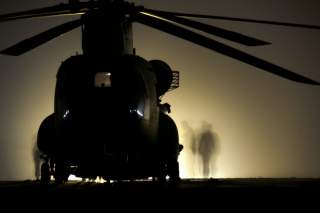Ahmed Abu Khattala and the Miranda-Rights Question
"With Khattala, Warsame and Ghaith, the administration is trying to have it both ways. It is a clever theory that may prove to be untenable—legally and perhaps morally."
We presume that the intelligence community and FBI are, at least at the highest levels, being exceedingly scrupulous about the line, because the damage to this technique if they are caught violating the rules could be enormous. The more likely danger is when it is executed at the operator level; nobody planned on Abu Ghraib, either. But, even if all government actors maintain the highest level of fidelity to the law in practice, the opaqueness of the practice will always leave doubt.
Ultimately, these cases take us back to a longstanding debate in terrorist cases: the degree to which they are simply crimes to be adjudicated through existing law-enforcement practices or acts of war to be handled through military means and under the law of war. With Khattala, Warsame and Ghaith, the administration is trying to have it both ways. It is a clever theory that may prove to be untenable—legally and perhaps morally.
Butch Bracknell is a retired career Marine officer, national security attorney and member of the Truman National Security Project. James Joyner, a former Army officer and combat veteran, is an associate professor of strategic studies at the Marine Corps Command and Staff College. These views are their own.
Image: Flickr/U.S. Army/CC by 2.0

